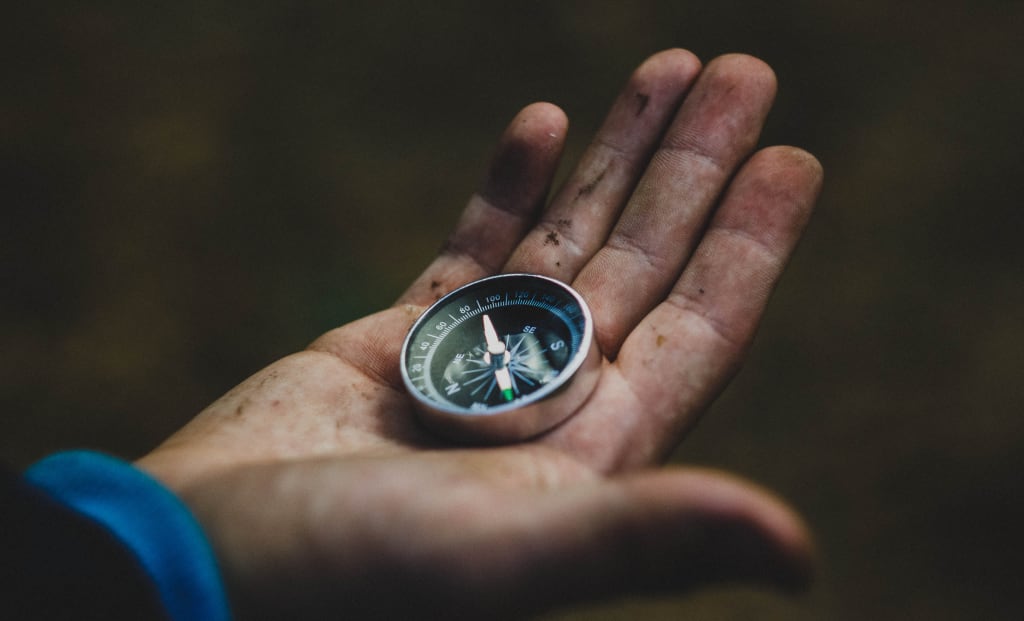
There was a point in my life where I didn't know what I wanted to do.
It was yesterday, kind of.
I've realized failure is a form of success, and you need it to improve—no matter how cliché that might sound. I'm learning to embrace my failures. It's hard; it's extremely hard and I'm failing more and more every day, but that's how I'm finding my way. Failures are the only true compass you have in life, and they help you steer your way out of the confusion if you use them correctly. Instead of always asking for directions, sometimes you should stop, observe, and asses your surroundings. Sometimes you'll be mislead either purposefully, by accident, or by pure routine. Sometimes people only take a trail because it's the only one they've ever known.
So how do you learn to accept your failures? That's the hardest part but one of the first steps to discovering your passion.
Step 1: Humble yourself. Accept when you're wrong. If you thought a chihuahua was the world's smallest dog, and after a long argument of trying to convince your little sister that you're right, you find out you were wrong, then you were wrong. No "but, I always thought... but I was always told," you were wrong. If you paint a car red when you were told to paint it maroon; no "but, red is close to maroon.... but John put the paints too close together," you were wrong.
Step 2: Doing something is better than doing nothing, unless that something is procrastination. If you want to paint a picture but feel overwhelmed because you don't feel like you have the skills, painting a house isn't going to help you get there. There's a difference between painting a wall a solid color and painting a picture with a thousand different brush strokes.
Step 3: Show people your mistakes. DO. NOT. WAIT. This is something I struggle with, and this is the reason I want to write articles on this site. I write for myself, I occasionally read my poetry at local poetry nights, and I wrote a blog article once. I always think I have to get better, I always think it has to be absolutely perfect, I can't stand to waste someone else's time. Here's the thing: other people generally don't know how bad you are unless they practice themselves, and if they know, they can always look away.
Step 4: Surround yourself with ambitious people. Maybe you don't think you're interested in fixing cars or making furniture but maybe someone you know is passionate and fixes cars every second they get. Learn from them. Ask them if you can help, just at least once. Maybe you'll hate it but maybe you'll catch their bug. No matter what it is, having ambitious, passionate people surrounding you will motivate you. It will make you see things you never have before.
Step 5: ASK FOR HELP. We have this mentality in the 21st century that we have to do everything alone, that if we didn't accomplish it on our own then it's not worth as much. Well let me ask you this, most of us know that Thomas Edison had a team of scientists behind him, but who can give me their names? Who knows the names of the special effects artists in their favorite films? It's okay to be a "background player," to contribute something without necessarily getting all of the credit. If praise is what you're after, you're not going to get nearly as much alone as you would if you were on a team. Do you think you could make all those inventions on your own? Do you think you could create a great movie by yourself? Be the leader, not the solitary player.
Step 6: Stop "treating yourself" so much. If you feel lost, if you're looking for your passion, put down the tablet. Turn off the tv. Get off Facebook, and get out there. Do the hard stuff, the things you think about but always end up pushing off to the side because you're "too busy but really want to do it eventually." Trust me, you have time and you have the resources.
Step 7: Cut down on or get rid of small talk. Most of us spend hours every day listening to things that ultimately don't matter. Things you'll forget in one day, or 20 minutes. What's the point? It's only a form of procrastination, it's only a form of mental clutter. Why not expend that energy on developing a skill?
Step 8: Keep focus but keep hobbies. If you want to create movies, don't sit there and watch them all the time, go out and make them. Study the movies you do watch, learn from them. The composition of the frame, the colors, the dialogue, everything that makes the movie what it is. Sometimes we need a little time to decompress, to not worry and stress, so watching a movie and just sinking down into your couch with a bowl of ice cream without deconstructing every aspect about it is okay sometimes—just not ALL the time.
Step 9: Money has a meaning. Money is value. If something is enjoyable to you but is not able to be monetized, then it's a hobby, not a career choice. Don't treat it if it's as valuable as money. I'm not saying money should be your everything, I'm saying we need money to survive. Playing video games may be your favorite thing, but what about creating them instead? If someone is making art but no one is buying it, they don't deserve money just for making it. Sometimes we have to adjust to our market or find our market somewhere else.
Step 10: Be responsible. Perhaps this should be higher up on the list, but it follows the money has a meaning point well I believe. Don't put your lack of success on someone else's shoulder's. We have arguably more opportunity now than anytime before in history. Want to make music? We have the internet where you can learn then distribute your craft. Want to make art? Same thing. Want to create apps? Same concept. Most pursuits are heavily reliant on networking, so while you shouldn't put your lack of success on other people's shoulders, you should go back to step 4 and surround yourself with ambitious people.
I'm still finding my way, and there's a hell of a lot more to it than 10 steps, but hopefully this helps at least one person get on the path to finding their way. Don't keep searching for articles, go out, keep a journal. Keep notes on life. Find your philosophy. I'm becoming an artist, I'm becoming a writer, I'm becoming the leader of a growing coalition I created that now has more than 400 members. I have a passion and that passion is to create. I draw, I design, I write, and I bring people together to bring in hopes to help them succeed. I may not be the most accomplished person in the world, but I know where I'm going.





Comments
There are no comments for this story
Be the first to respond and start the conversation.